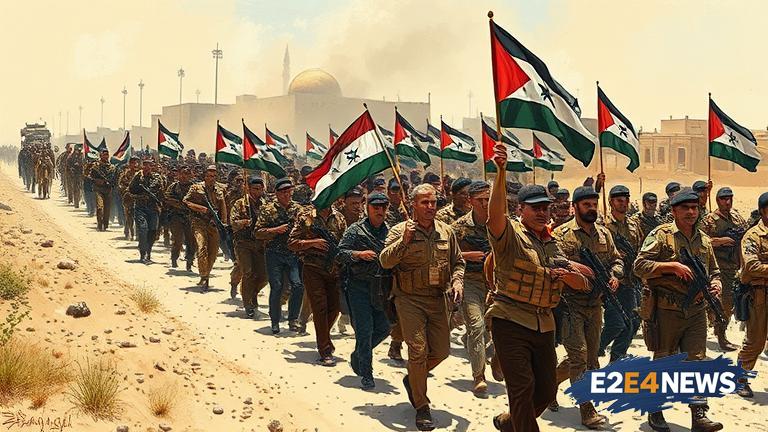The recent march of Israeli settlers on Gaza has sent shockwaves throughout the region, with many fearing a resurgence of violence and instability. The march, which was attended by thousands of settlers, was seen as a show of force and defiance by the Israeli government. The settlers, who were largely from the West Bank, marched on the Gaza border, waving Israeli flags and chanting slogans. The march was met with a heavy police presence, with Israeli security forces deployed to maintain order and prevent any clashes with Palestinian protesters. Despite the tensions, the march passed relatively peacefully, with only a few minor incidents reported. However, the march has sparked widespread condemnation from Palestinian leaders, who have accused the Israeli government of provoking violence and undermining the peace process. The march has also been criticized by international leaders, who have called for calm and restraint in the region. The Israeli government has defended the march, saying it was a legitimate expression of Israeli sovereignty and a celebration of the country’s independence. However, many have questioned the timing and motives behind the march, coming as it does amidst a period of heightened tensions and uncertainty in the region. The march has also highlighted the deep-seated divisions and conflicts that exist between Israelis and Palestinians, with many on both sides feeling a sense of frustration and disillusionment with the peace process. Despite the challenges and obstacles, many are still holding out hope for a peaceful resolution to the conflict, with some calling for a return to negotiations and a commitment to finding a two-state solution. The international community has a crucial role to play in supporting and facilitating a peaceful resolution, and it is imperative that all parties work together to find a way forward. The march on Gaza has also sparked a wider debate about the role of settlements in the peace process, with many arguing that they are a major obstacle to a lasting peace. The Israeli government has long been accused of expanding settlements in the West Bank and East Jerusalem, despite international criticism and condemnation. The settlements are seen by many as a symbol of Israeli occupation and a major barrier to Palestinian statehood. The march on Gaza has also highlighted the human cost of the conflict, with many families and communities affected by the violence and instability. The psychological trauma and emotional toll of the conflict should not be underestimated, and it is essential that all parties work to address the root causes of the conflict and find a way to bring peace and stability to the region. The march on Gaza has also sparked a wave of solidarity and support from around the world, with many people taking to social media to express their outrage and condemnation of the Israeli government’s actions. The international community has a responsibility to hold all parties to account and to work towards a peaceful resolution to the conflict. The situation in Gaza remains precarious, with many families and communities struggling to survive amidst the poverty, unemployment, and lack of access to basic services. The march on Gaza has also highlighted the need for a more nuanced and balanced approach to the conflict, one that takes into account the complexities and challenges faced by all parties. Ultimately, the march on Gaza has served as a reminder of the urgent need for a peaceful resolution to the conflict, and the importance of finding a way forward that works for all parties. The international community must continue to support and facilitate a peaceful resolution, and all parties must work together to find a way to bring peace and stability to the region.
